
 |
| Illustration by Zhou Tao |
ON a recent visit to my relatives' home, I found myself sitting with them watching a prime-time soap opera about the War of Resistance Against Japanese Aggression (1937-1945).
The episode showed a handful of Chinese female soldiers sneak into a heavily guarded Japanese garrison, take out the guards using guns with silencers, enter a tent housing the radio, send a message calling for reinforcements, and miraculously escape unscathed.
The characters accomplished all this while the beep of the radio was within the earshot of sentries just meters away.
When we heaped scorn on such theatrical absurdities, my grandmother, now in her late 80s, chimed in. It was both hilarious and certainly not true that Japanese soldiers were the slow-witted dummies depicted on the screen, she said.
In her childhood memories, they were the ruthless devils who often barged into her village, looking for pretty girls to rape.
Thanks to some imaginative directors and script writers, the history of China's eight-year titanic struggle is rewritten: instead of civilian lambs to slaughter and out-gunned ragtag Chinese soldiers, we now see Chinese beating the ruthless invaders hands down. It is as if the turn had come for the "Japanese devils" to suffer the cruelty of war and accept the imagined fact of a much weaker Chinese David vanquishing the mighty Japanese Goliath.
And the cruelty seems endless. Recently we have seen a host of coarsely shot war dramas filled with absurdities.
For instance, in one installment, a heroic kung fu master tears a Japanese soldier into two with his bare hands in a mist of blood and flesh. In another, a female protagonist is gang-raped by Japanese soldiers, then she jumps up (her trousers already fastened) and kills all her assailants, leaving viewers wondering why the superwoman didn't resist her tormentors in the first place.




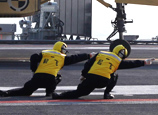
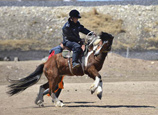
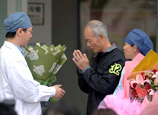
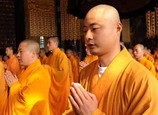

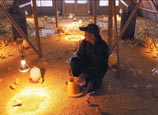







 A father posed nude at an art studio, to raise money for his children's medical expenses
A father posed nude at an art studio, to raise money for his children's medical expenses


![]()
